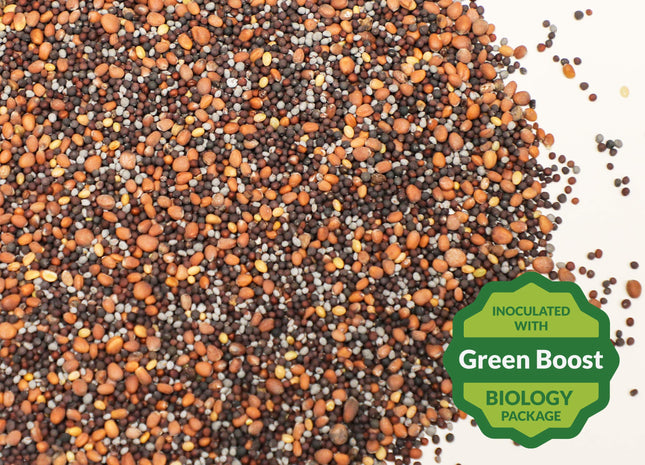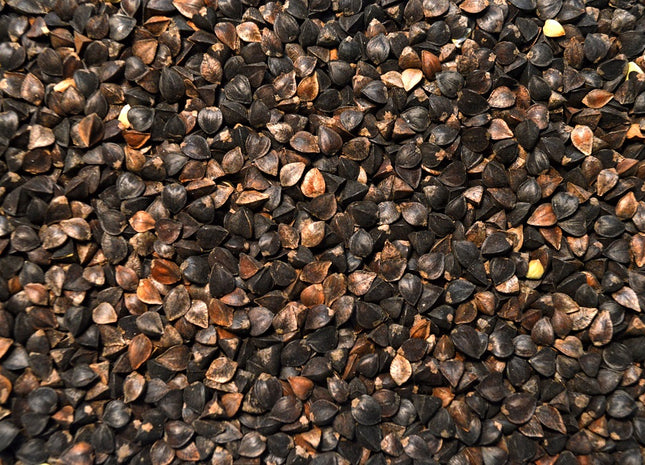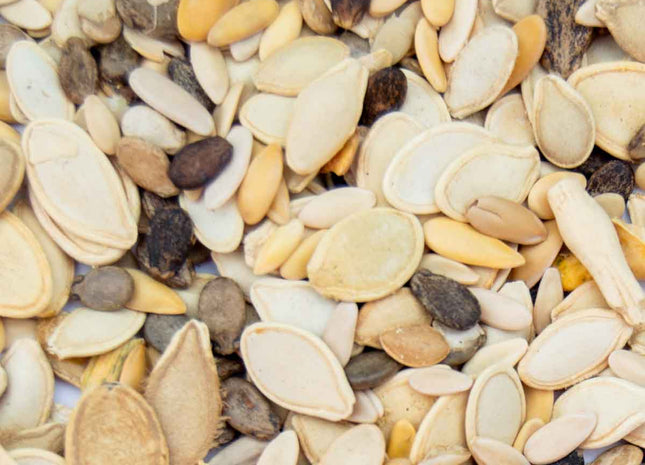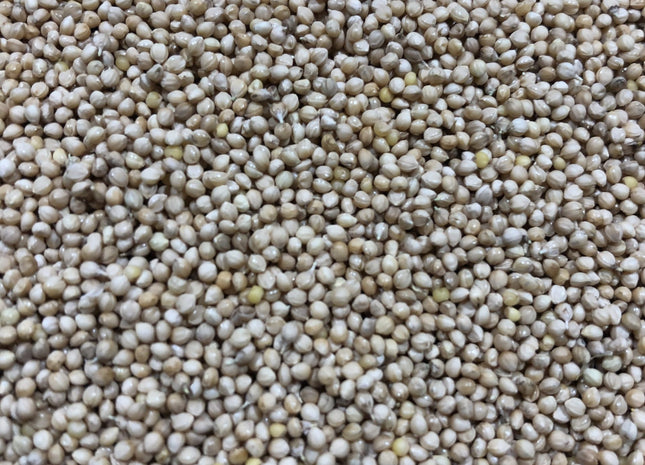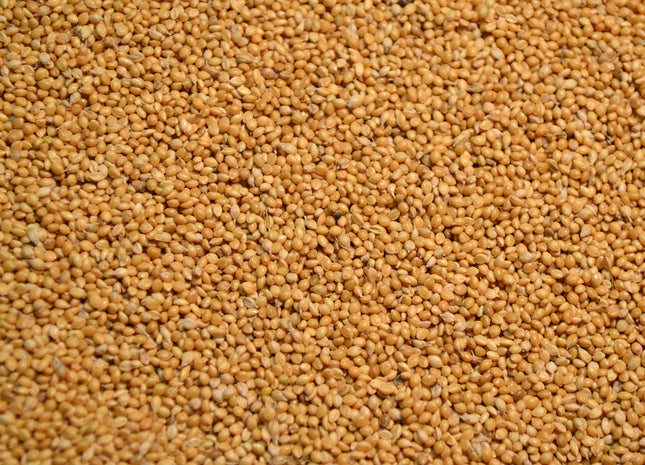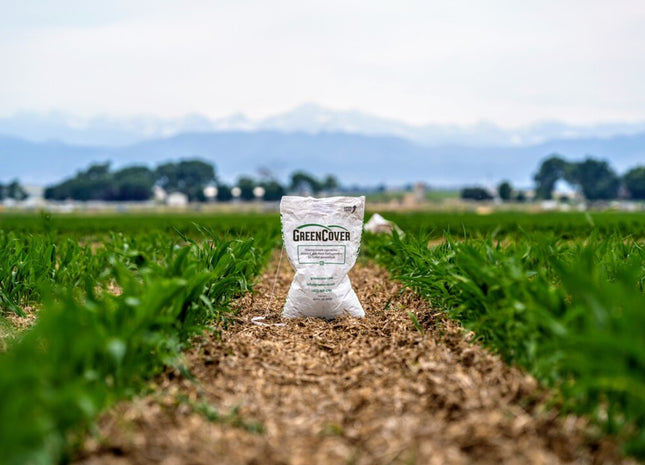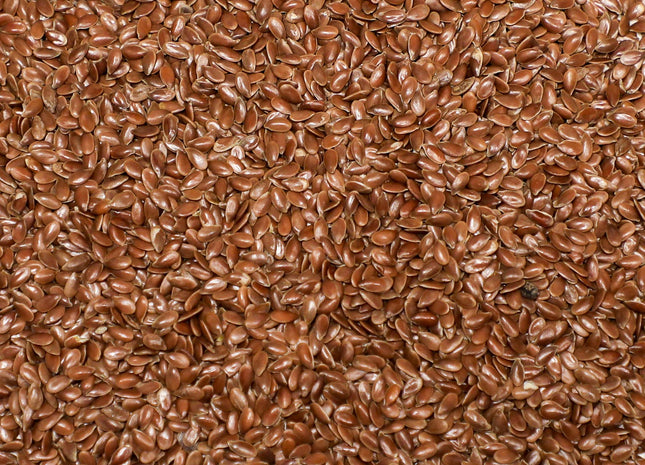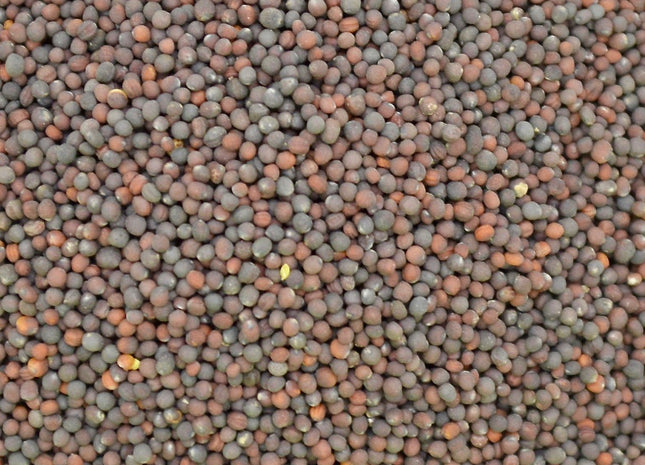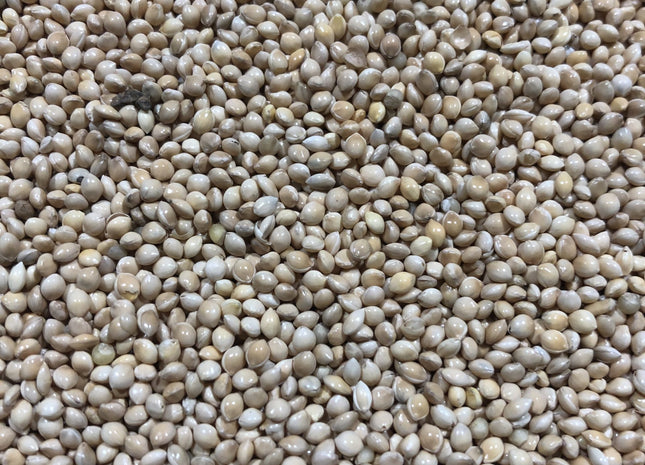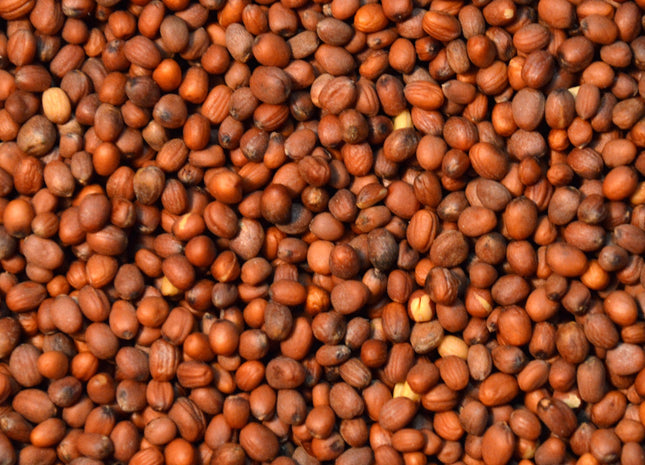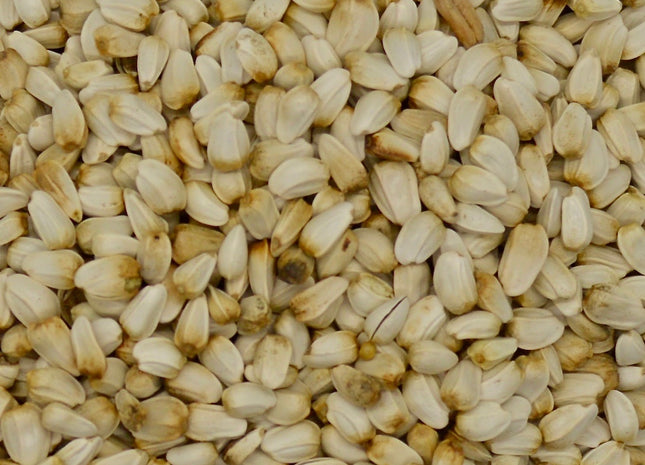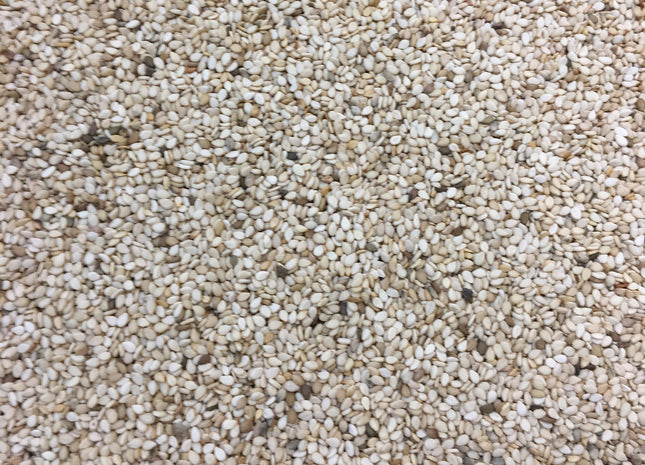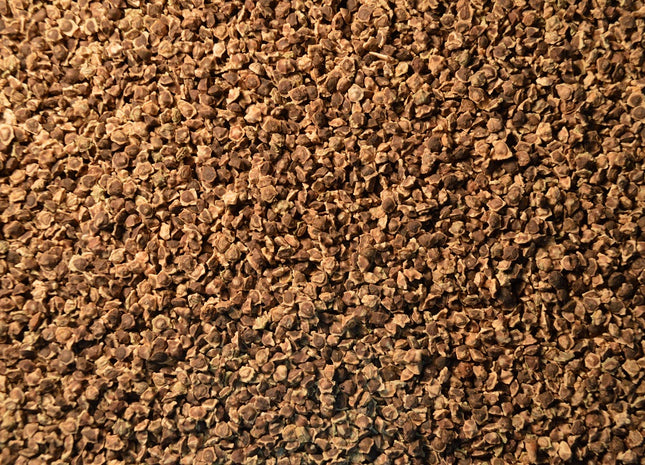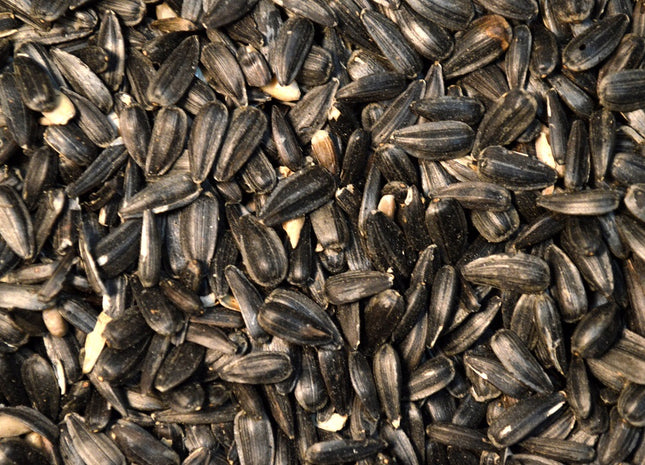Products

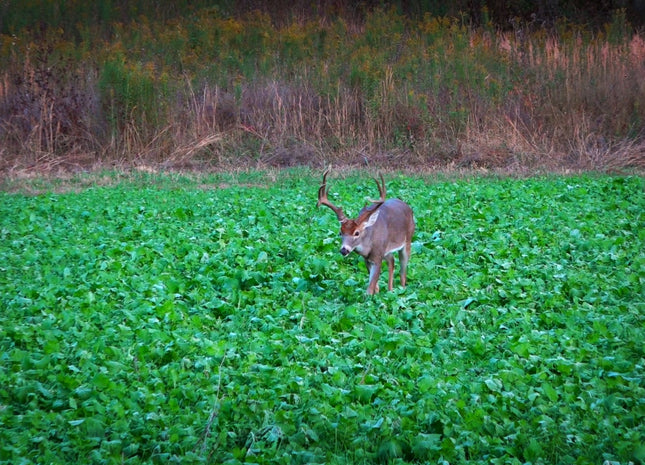
Brassica Plus Release
The Brassica Plus Release blend is a forage mix tailored for peak deer attraction and nutrition from autumn to spring. This blend excels when compared to traditional brassica plots by integrating not only brassicas but also a selection of resilient, cold-tolerant clovers. This combination ensures: Peak Attraction: Deer are drawn to this mix with its early fall allure of fresh, tender brassicas and clovers. Winter Nutrition: The brassica bulbs act as a powerhouse of nutrition, sustaining deer through the harsh winter months when food sources are scarce, even if there’s snow on the ground. Extended Forage: In areas with milder winters, the clovers in our blend experience a resurgence, offering a second wave of high-protein forage into late winter and early spring. Turkey Attraction: With this blend, your plot becomes a turkey hunting location also as turkeys area attracted to the flush of clovers during the spring. This product is pre-inoculated with the Green Boost 2.0 Biology Package, so you can reduce your fertilizer usage. Green Boost 2.0 includes: MycoGreen NPK is a dual inoculant containing ten functionally diverse mycorrhizal fungi and eight bacterial species. Elevate'd Fungi is a seed applied inoculant derived from natural products designed to stimulate seed germination, increase root and biological biomass in the soil, and improve soil structure. RhizoBac X-Tend features high concentrations of multi-species nitrogen fixing rhizobia for peas, vetch, cowpeas, sunn hemp and soybeans. Additionally, free living nitrogen fixing and phosphorus solubilizing bacteria combine for a robust broad spectrum seed treatment for your cover crops. Healthier and more vigorous plants will lead to healthier animals and bigger antlers! Green Cover was not able to source all these seeds from organic certified production. All seeds are non-GMO and non-treated.
from $74.00

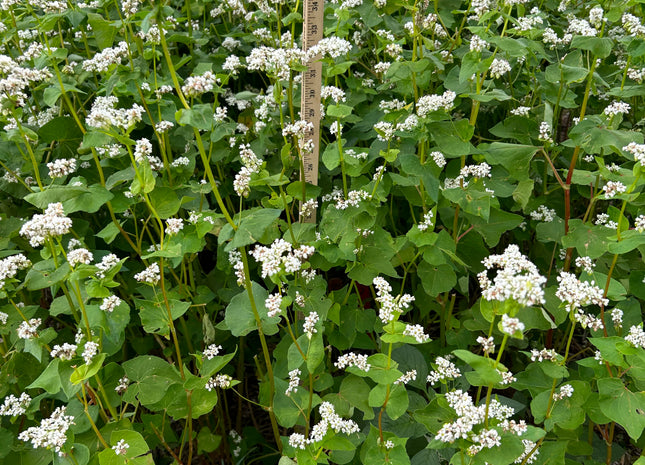
Buckwheat (Mancan)
Buckwheat is a fast establishing broadleaf that works great as a warm season cover crop. Buckwheat is also known for being a phosphorus scavenger. This means it can take up phosphorus more efficiently than other plants. Being a short season plant with 45-60 day maturity, it can produce viable seed throughout the growing season. This reseeding ability helps it suppress weeds. Additionally, buckwheat is fast to flower, making it a great species for pollinators. Buckwheat can be a great addition to grazing mixes as well.
from $1.05 per lb

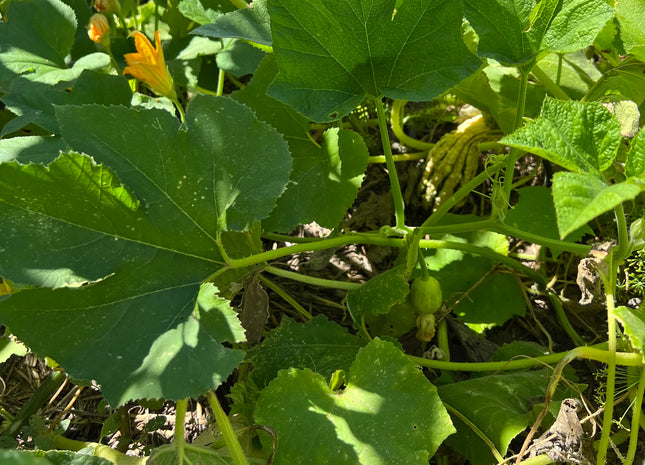
Cucurbit Blend
The cucurbit plant family includes plants like squash, pumpkins, and gourds. These warm season annual broadleaves are known for being viny which can be a very desirable trait to have in a cover crop blend. In the case of a row skip when planting or a troublesome soil spot in the field, nearby cucurbits will vine out to soak up the sun where nothing else is growing. These cucurbit fruits can also add nutrition to winter stockpile forage mixes as the cold weather softens their outsides and cattle learn to eat the seeds and fruit flesh.
from $3.05 per lb


Dill
You know dill as an herb to add to pickles or your summer cucumber salad but have you considered it as a cover crop? Dill brings plant family diversity to the field, attracts beneficial insects plus it smells amazing! We've observed that it is a fairly easy plant to grow during the summer and does a great job suppressing weeds. Dill will add diversity to your summer cover crop mixes and encourage soil microbe diversity.
from $3.80 per lb


Flax (Brown)
Flax can be utilized in many small grain and corn rotations as a potential cover crop or fiber/oil crop. Compared to other common crops, overall nutrient demand is lower and very little nitrogen is needed. Vegetative growth normally requires 50 days before flowering occurs but after this flowering can last 2-4 weeks. Flax can be utilized as a green manure if terminated early enough but take caution if attempting to cut too late as lignin/cellulose content increase with maturity and would hamper decomposition. Nearly 95% of the water flax extracts from the soil is in the top 2-3 feet because of its shallow root structure. Water use is considered moderate with respect to other field crops, but flax uses about 3-4 inches less than soybeans. This is primarily due to the fact that the leaves of flax are generally numerous but leaf area is limited and thus ET is lower. As mentioned before, this species is an excellent companion crop next to other species in an early season mixture. Flax is generally a self-pollinated crop but pollinating insects are attracted to the various blue/purple colors of the flowers. Because flax is a broadleaf species, most diseases associated with it will not transfer over and cause infection to corn, soybeans, or wheat with the exception of powdery mildew and rhizoctonia after legumes.
from $1.15 per lb

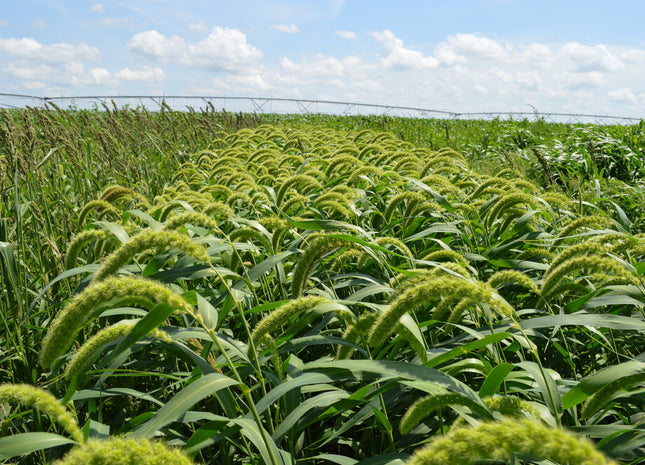
Foxtail Millet (White Wonder)
White Wonder foxtail millet is used primarily for hay production. The stem is not as fine as Golden German Millet but it will get taller in height, approximately three feet, given adequate moisture. Expect to cut hay in approximately 50-55 days after planting. Windrow when heads begin emerging from the boot. Foxtail millet is also a great addition to summer grazing or wildlife mixes. Foxtail is very drought tolerant and offers a low cost forage option.
from $0.80 per lb

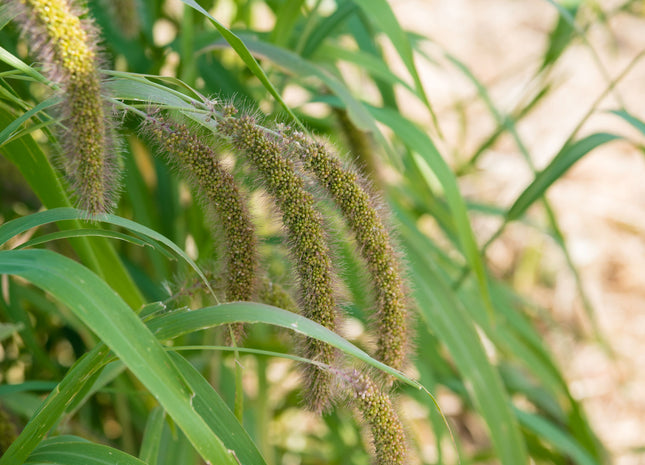
German Millet (Golden)
German millet is a warm season grass that can be planted earlier than sorghum sudan or pearl millet. Though it is not as productive as the aforementioned grasses, german millet makes a cost effective hay crop, ready for cutting about 55-60 days after planting. It does not have good regrowth which lends itself well to establishing the next crop without lingering competition after haying occurs.
from $0.75 per lb


German Millet (Strain R)
German millet is a warm season grass that can be planted earlier than sorghum sudan or pearl millet. Though it is not as productive as the aforementioned grasses, german millet makes a cost effective hay crop, ready for cutting about 55-60 days after planting. It does not have good regrowth which lends itself well to establishing the next crop without lingering competition after haying occurs.
from $0.90 per lb

Grazing Popcorn (Non-GMO)
This Non-GMO Grazing Popcorn is an excellent product for summer and fall grazing mixes as well as stockpile grazing mixes. Because corn tolerates cooler nights better than sorghum products, this is a great option for late summer planted grazing mixes. This seed is quite a bit smaller than the BMR corns so it stays in mixes and goes through a drill better than the larger BMR corn. While it doesn't contain the BMR trait which contributes to palatability, it is a better grazing corn compared to regular field corn and it will stand through the winter better than the BMR varieties. We don't recommend using a corn product in your cover crop mix if it is part of your cash crop rotation.
from $0.75 per lb
- Out of Stock


Organic Brown Flax
Note: This product is certified organic. Flax works well as a cover crop in many small grain and corn rotations. The overall nutrient demand for flax is low and very little nitrogen is needed. Because flax is a broadleaf species, most diseases associated with it will not transfer over and cause infection to corn, soybeans, or wheat with the exception of powdery mildew and rhizoctonia after legumes. Flax can be utilized as a green manure if terminated early enough but take caution if attempting to cut too late as lignin/cellulose content increase with maturity and would hamper decomposition. Pollinators are attracted to the various blue/purple colors of the flowers that can last for 2-4 weeks.
from $1.92 per lb


Organic Mancan Buckwheat
Note: This product is certified organic. Buckwheat is a fast establishing broadleaf that works great as a warm season cover crop. Buckwheat is also known for being a phosphorus scavenger. This means it can take up phosphorus more efficiently than other plants. Being a short season plant with 45-60 day maturity, it can produce viable seed throughout the growing season. This reseeding ability helps it suppress weeds. Additionally, buckwheat is fast to flower, making it a great species for pollinators. Buckwheat can be a great addition to grazing mixes as well.
from $1.20 per lb
- Out of Stock

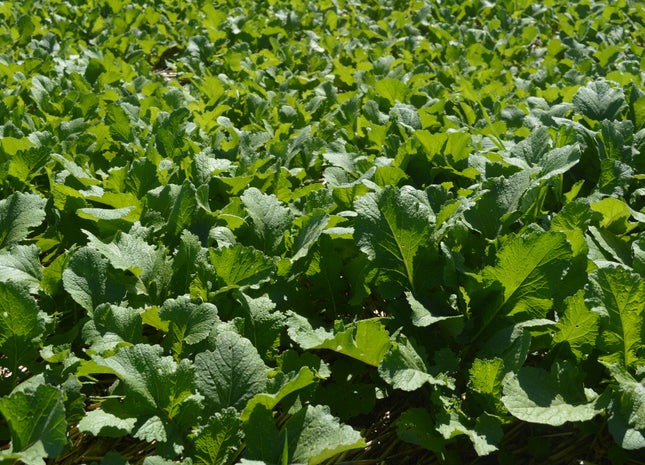
Organic Turnip
Note: This product is certified organic. Purple top turnips have been a staple grazing brassica for many years and are commonly used in late summer planted grazing mixes, often with a cool season cereal. Turnip bulbs are storehouses of nutrition and energy and are very valuable to winter grazers. In addition, turnips need to vernalize to make seed so if turnips are planted in the spring they will grow vegetatively all season long.
from $2.88 per lb

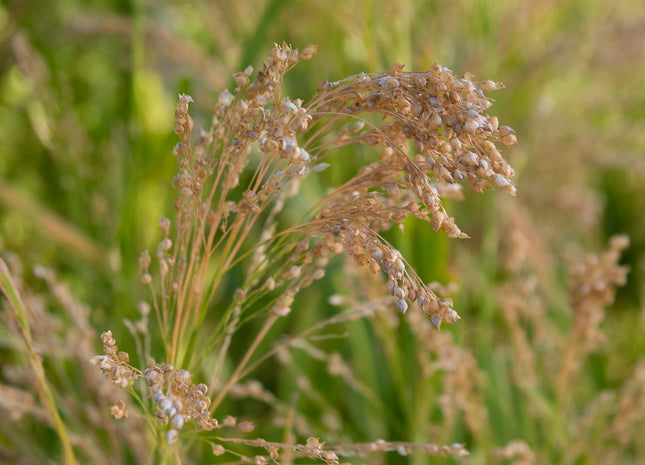
Proso Millet (White)
Proso millet is one of the most drought tolerant and cost effective annual grasses. It is the shortest growing millet and works best in grazing mixes the northern US. Proso millet is an excellent seed producing making it is a great plant for game bird or other wildlife mixes.
from $0.70 per lb

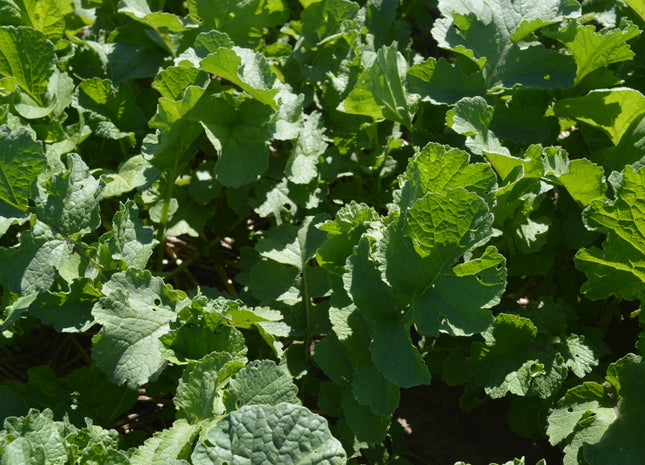
Radish (Nematode Control)
Nematode Control Radish possess a unique mechanism for nematode management. They release a specific biochemical compound from their roots, which prompts cyst nematode eggs to hatch prematurely. Subsequently, these nematodes adhere to the radish root, but struggle to acquire sufficient sustenance. Since radishes lack the nutrients essential for their survival, the nematodes either perish or fail to reproduce. Nematode-controlling radishes are selectively bred to optimize control over specific nematode species, offering an effective solution for managing nematode populations.
from $2.60 per lb

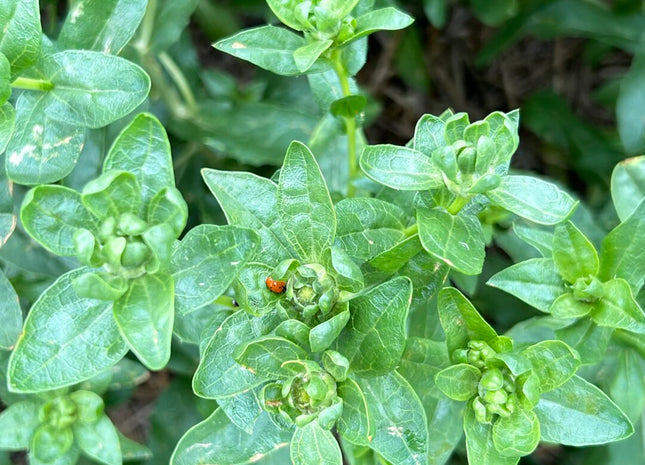
Safflower (Baldy)
Safflower is a drought tolerant, warm season broadleaf that provides excellent forage for livestock. Most varieties or safflower become prickly with maturity, rendering the plants unpalatable for livestock, but Baldy Safflower is a spineless variety developed specifically for grazing and cover crops. Baldy can be handled with bare hands even at maturity and is palatable for livestock grazing. In addition to it's grazing capabilities, safflower is exceptional at breaking hard pans, encouraging water and air movement into the soil profile, as well as scavenging nutrients from depths unavailable to most agronomic crops. It's impressive taproot which has been observed to grow 8-10 feet in ideal conditions.
from $0.85 per lb

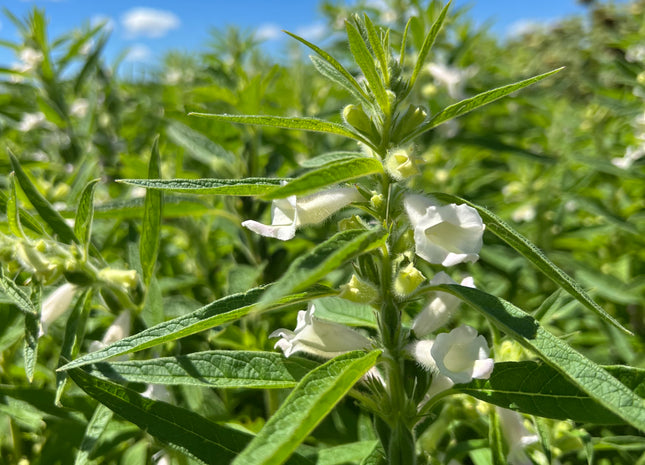
Sesame
Sesame is a warm season broadleaf that is normally grown for the oil content of the seed. It is one of the oldest cultivated plants and has been grown by people for over 4,000 years. Sesame loves hot weather and can grow with very limited water as well as being fairly tolerant of low pH soils. Sesame can grow 5-6 feet tall and will put on bell-shaped, white and purple flowers late in the season which makes it a great addition to a full season pollinator mix. Sesame has little to no forage value as livestock will not graze it, but it can still be a good addition to a grazing mix as left over residue.
from $2.15 per lb

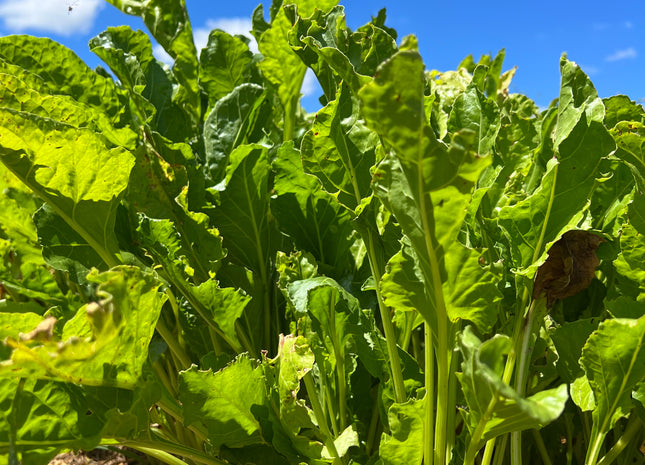
Sugar Beets Non-GMO
Sugar beets, a versatile broadleaf plant, bring a deep taproot and ample frost resistance to your cover crop arsenal. Their robust taproots can penetrate stubborn hardpans, with the majority of root growth hidden beneath the surface. These carbohydrate packed plants are a preferred choice for both wildlife and livestock. When grazed early, they display remarkable regrowth potential.
from $4.05 per lb

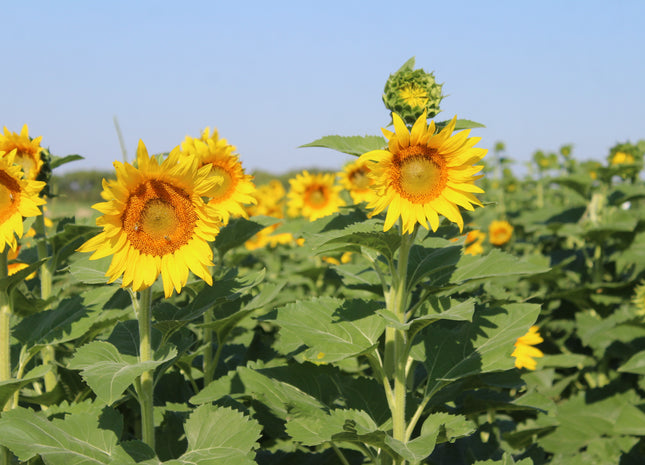
Sunflower (Peredovik Type)
Sunflower is renowned for its extensive and prolific root system and its ability to soak up residual nutrients. Sunflowers work very well in cover crop mixtures. With rapid early season establishment, additional covers under the canopy that normally don’t grow under cool conditions can begin to take advantage of warmer and favorable weather when sunflowers are growing slower. With upright growth and anchored plants in the soil, surrounding vining plants can support their own growth by working their way up to reach sunlight thereby providing the structure they need to grow. Livestock love these young plants and the mature seed heads make a great feed source as well. Beneficial pollinators are attracted to the bright colors of sunflower heads.
from $0.90 per lb


Turnip (Purple Top)
Purple top turnips have been a staple grazing brassica for many years and are commonly used in late summer planted grazing mixes, often with a cool season cereal. Turnip bulbs are storehouses of nutrition and energy and are very valuable to winter grazers. In addition, turnips need to vernalize to make seed so if turnips are planted in the spring they will grow vegetatively all season long.
from $1.50 per lb

